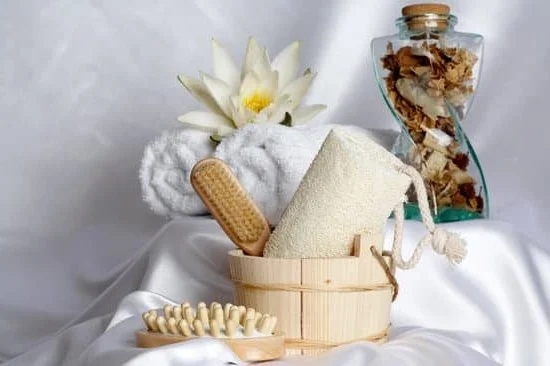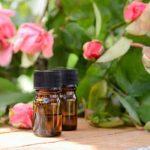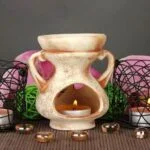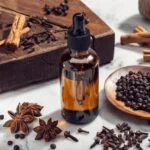Aromatherapy massage has long been recognized for its psychological benefits, combining the power of scent and touch to promote relaxation and improve mental well-being. The use of essential oils in massage therapy has grown in popularity, with many people seeking this holistic approach to address stress, anxiety, and mood disorders.
In this article, we will delve into the science behind aromatherapy and explore the psychological benefits of aromatherapy massage, including its impact on stress reduction, emotional well-being, and improved sleep quality.
Aromatherapy massage involves the use of essential oils derived from plants to enhance the massage experience. These oils are carefully selected for their therapeutic properties and unique scents, which can have a profound effect on the brain and mood.
Through inhalation and absorption into the skin, essential oils stimulate olfactory receptors and trigger emotional responses in the limbic system of the brain. This section will explore how these aromatic compounds work to create a sensory experience that promotes relaxation and reduces stress.
Furthermore, we will discuss how aromatherapy massage can contribute to improved mental health by addressing conditions such as anxiety and depression. Research has shown that certain essential oils have anxiolytic and antidepressant effects, making them valuable tools in managing these psychological disorders. By understanding the science behind aromatherapy and its potential therapeutic benefits, individuals can make informed choices about incorporating this holistic practice into their self-care routines for overall well-being.
The Science Behind Aromatherapy
Aromatherapy has been used for centuries as a natural way to promote health and well-being. The use of essential oils in aromatherapy massage can have a powerful impact on the brain and mood, thanks to the science behind these therapeutic oils. Essential oils are highly concentrated plant extracts that have been found to have various health benefits, including psychological ones.
How Essential Oils Impact the Brain
When inhaled or applied to the skin during an aromatherapy massage, essential oils can trigger olfactory receptors in the nose, sending signals to the brain’s limbic system – the area responsible for emotions and memories. This stimulation can lead to the release of chemicals such as serotonin and endorphins, which can help improve mood and reduce stress.
For example, lavender essential oil has been shown to have a calming effect on the nervous system, while peppermint oil is known for its invigorating properties.
Essential Oils and Mood Enhancement
Certain essential oils have been found to directly impact mood by influencing neurotransmitters in the brain. For example, citrus scents such as bergamot and orange have been linked to increased feelings of happiness and relaxation. On the other hand, floral scents like rose and geranium are known for their ability to promote feelings of comfort and emotional balance. By incorporating these essential oils into aromatherapy massage sessions, individuals may experience a significant improvement in their overall mood.
The Power of Aromatherapy Massage
When combined with touch during a massage session, aromatherapy can further enhance its psychological benefits. The combination of scent and touch has been found to deepen relaxation, reduce anxiety, and promote overall emotional well-being. This holistic approach creates a sensory experience that can address both physical tension and emotional stress simultaneously. As a result, many individuals find that aromatherapy massage provides not only physical relief but also mental and emotional support.
Understanding the Psychological Benefits of Aromatherapy Massage
Aromatherapy massage has been known to provide a wide range of psychological benefits, with stress reduction and relaxation being at the forefront. The combination of essential oils and therapeutic massage can work wonders for the mind, helping individuals feel more at ease and calm. The sense of touch during the massage paired with the aroma of the essential oils can promote deep relaxation, which is beneficial for managing stress.
Aromatherapy massage has been found to be effective in reducing cortisol levels, also known as the stress hormone. When cortisol levels are lowered, individuals tend to feel less stressed and anxious. In addition, the inhalation of essential oils during the massage can have a direct impact on the brain’s limbic system, which plays a role in emotions, behaviors, and long-term memory. This can lead to an overall improvement in mood and mental well-being.
Furthermore, aromatherapy massage has been associated with increased feelings of calmness and relaxation. The combination of gentle massage strokes and soothing scents can create a tranquil environment that allows individuals to unwind both mentally and physically. As a result, aromatherapy massage is often recommended as a holistic approach to managing stress and promoting relaxation.
| Aromatherapy Massage Psychological Benefits | Stress Reduction and Relaxation |
|---|---|
| The combination of essential oils and therapeutic massage promotes deep relaxation | Aromatherapy massage reduces cortisol levels, leading to lower stress and anxiety |
| Inhalation of essential oils impacts the brain’s limbic system, improving mood | Aromatherapy massage creates a tranquil environment for mental and physical unwinding |
Aromatherapy Massage for Anxiety and Depression
Aromatherapy massage has gained recognition not only for its physical benefits but also for its positive impact on mental health. Research has shown that the use of essential oils during massage can help alleviate symptoms of anxiety and depression, making it a valuable complementary therapy for those struggling with these conditions.
The use of aromatherapy in massage can stimulate the limbic system, which is the part of the brain that plays a role in emotions, behavior, and long-term memory. When essential oils are inhaled or absorbed through the skin during a massage, they can directly affect this area of the brain, leading to feelings of relaxation and calm. This direct impact on the brain makes aromatherapy massage a powerful tool for managing anxiety and depression.
Studies have also shown that certain essential oils used in aromatherapy massage have anxiolytic and mood-enhancing properties. For example, lavender oil has been found to reduce anxiety levels, while bergamot oil has been associated with improved mood. By incorporating these oils into a massage session, individuals may experience a significant reduction in their symptoms of anxiety and depression.
In addition to the physiological effects on the brain, aromatherapy massage provides individuals with a sense of self-care and relaxation, which can be particularly beneficial for those dealing with mental health challenges. Taking time for oneself and indulging in a soothing aromatherapy massage can help individuals feel more grounded and better equipped to cope with their symptoms.
The incorporation of touch during the massage also promotes feelings of connection and comfort, further contributing to an improved overall sense of well-being.
| Psychological Benefits | Data |
|---|---|
| Reduction in anxiety levels | Aromatherapy massage has been shown to decrease anxiety levels through the use of specific essential oils such as lavender. |
| Mood enhancement | Essential oils like bergamot have been linked to improved mood when used in aromatherapy massage sessions. |
| Sense of relaxation and self-care | The combination of touch and scent in aromatherapy massages contributes to an overall feeling of relaxation and self-care. |
The Role of Aromatherapy in Enhancing Mood and Emotional Well-Being
Aromatherapy is a holistic healing treatment that uses natural plant extracts to promote health and well-being. When combined with massage, it can have powerful psychological benefits. The combination of touch and scent can have a profound effect on emotions and mood, making aromatherapy massage an effective way to enhance emotional well-being.
The Power of Scent in Influencing Emotions
The sense of smell is closely linked to the brain’s emotional center, known as the limbic system. When essential oils are inhaled during an aromatherapy massage, the molecules stimulate the olfactory nerves which then send signals to the limbic system, influencing emotions, behavior, and memory. Certain scents can promote feelings of calmness, happiness, and relaxation, making them ideal for enhancing mood and emotional well-being during a massage.
Relieving Stress and Anxiety Through Aromatherapy Massage
Stress and anxiety are common experiences in today’s fast-paced world, but they can have detrimental effects on mental health. Aromatherapy massage has been found to be effective in reducing stress levels and promoting relaxation. Essential oils such as lavender, chamomile, and bergamot have been shown to have calming properties that help alleviate anxiety and stress. When used in combination with massage techniques, these essential oils can provide a soothing experience that promotes emotional well-being.
Promoting Emotional Balance Through Aromatherapy Massage
Emotional balance is essential for overall well-being, and aromatherapy massage can play a role in achieving this balance. By using essential oils with uplifting properties such as citrus scents or floral aromas like jasmine or rose, individuals can experience an improvement in their mood while receiving a relaxing massage.
The combination of touch and scent creates a synergistic effect that helps individuals feel more emotionally balanced and at ease. Overall, aromatherapy massage has the potential to positively impact mood and emotional well-being by providing a holistic approach to mental wellness.
Exploring the Connection Between Aromatherapy Massage and Improved Sleep Quality
Aromatherapy massage has long been known to have a positive impact on sleep quality. The combination of essential oils and massage therapy can work wonders in promoting relaxation and tranquility, which are essential for achieving a good night’s sleep. Below are some key points to consider when exploring the connection between aromatherapy massage and improved sleep quality:
- Essential Oils for Sleep: Certain essential oils, such as lavender, chamomile, and ylang-ylang, have been found to have properties that promote relaxation and help with insomnia. These oils can be incorporated into massage sessions to enhance their therapeutic effects.
- Calming Effects on the Brain: The gentle touch of a massage combined with the aroma of essential oils can signal the brain to release feel-good hormones such as serotonin and dopamine, which can help calm the mind and body before bedtime.
- Reduced Stress and Anxiety: Aromatherapy massage can also help alleviate stress and anxiety, both of which are common obstacles to getting a restful night’s sleep. By addressing these psychological factors, aromatherapy massage contributes to overall improved sleep quality.
Incorporating aromatherapy massage into your bedtime routine can be a game-changer for those struggling with sleep issues or simply looking to enhance their nightly rest. By creating a peaceful environment through scent and touch, individuals can experience deeper relaxation leading to improved sleep patterns. With its proven psychological benefits for stress reduction and relaxation, aromatherapy massage is indeed a powerful tool for enhancing sleep quality.
Whether it’s through professional spa treatments or at-home self-care routines, integrating aromatherapy into your nightly wind-down activities can pave the way for more restorative sleep. By making use of high-quality essential oils and practicing proper massage techniques, individuals can reap the rewards of improved sleep quality through aromatherapy massage.
Case Studies
Aromatherapy massage has been known to provide countless psychological benefits, with individuals reporting improved mood, reduced stress, and a greater sense of relaxation. Here are some real-life experiences of individuals who have benefited from aromatherapy massage:
- Case Study 1: Sarah, a working mother of two, struggled with chronic stress and anxiety. After incorporating regular aromatherapy massages into her self-care routine, she noticed a significant reduction in her stress levels. The soothing scents of essential oils combined with the therapeutic touch of the massage helped Sarah experience a deep sense of relaxation and calm.
- Case Study 2: Jason, a college student dealing with symptoms of depression, found relief through aromatherapy massage. The uplifting and mood-enhancing properties of essential oils such as lavender and bergamot helped improve Jason’s overall emotional well-being. He reported feeling more positive and motivated after each session.
- Case Study 3: Emma, a retiree struggling with insomnia, turned to aromatherapy massage as a natural way to improve her sleep quality. The soothing effects of essential oils like chamomile and ylang-ylang helped create a tranquil atmosphere during her massages, leading to better sleep patterns and overall restfulness.
These case studies serve as powerful examples of how aromatherapy massage can positively impact one’s psychological well-being. Whether it be reducing stress, improving mood, or enhancing sleep quality, the combination of scent and touch in aromatherapy massage offers tangible benefits for mental health.
Individuals like Sarah, Jason, and Emma have experienced firsthand the transformative effects of aromatherapy massage on their psychological well-being. Incorporating this holistic practice into one’s self-care routine can provide a nurturing and rejuvenating experience that promotes emotional balance and overall mental wellness. By exploring these real-life experiences, we gain insight into the depth and breadth of the psychological benefits that aromatherapy massage has to offer.
Tips for Incorporating Aromatherapy Massage Into Your Self-Care Routine
In conclusion, the benefits of aromatherapy massage on psychological well-being are significant and can positively impact an individual’s mental health. The combination of scent and touch in aromatherapy massage has been shown to reduce stress, promote relaxation, and improve mood. The science behind essential oils’ impact on the brain and mood further supports the psychological benefits of aromatherapy massage, making it an effective tool for managing anxiety and depression.
Furthermore, the ability of aromatherapy massage to enhance emotional well-being and improve sleep quality highlights its potential in promoting overall mental wellness. Real-life case studies have also demonstrated the positive experiences individuals have had with aromatherapy massage, further confirming its psychological benefits. By incorporating aromatherapy massage into one’s self-care routine, individuals can create a spa-like experience at home that not only relaxes the body but also nurtures the mind.
Therefore, it is clear that aromatherapy massage offers valuable psychological benefits that can contribute to an individual’s overall mental health and well-being. As more people seek natural and holistic approaches to support their mental wellness, aromatherapy massage stands out as a powerful tool for promoting relaxation, reducing stress, improving mood, and enhancing emotional well-being.
With the right knowledge and techniques, incorporating aromatherapy massage into one’s self-care routine can lead to a heightened sense of tranquility and balance in daily life.
Frequently Asked Questions
How Does Aromatherapy Help With Mental Health?
Aromatherapy can help with mental health by promoting relaxation, reducing stress and anxiety, and improving mood. The inhalation of essential oils can stimulate the limbic system in the brain, which is involved in emotions and memory.
What Are the Physiological and Psychological Benefits of the Essential Oils?
Essential oils have physiological benefits such as reducing inflammation, boosting the immune system, and relieving pain. Psychologically, they can positively impact mood, reduce anxiety, and promote relaxation. Different oils have different effects on the body and mind.
What Are the Physiological Effects of Aromatherapy on the Body Systems?
Aromatherapy affects the body’s physiological systems by influencing the respiratory system through inhalation, the circulatory system through absorption into the bloodstream, and the nervous system through stimulation of the brain. It can also have an impact on hormone production and balance within the body.

Are you looking for a natural way to improve your health and wellbeing?
If so, aromatherapy may be the answer for you.





